Source: VOA
Author:Michael Lipin
September 01, 2014 8:00 AM
WASHINGTON —At a White House ceremony on July 4, President Barrack Obama hosted 25 foreign-born members of the U.S. military in celebrating the anniversary of American independence. Representing 15 different countries, including China, Obama called the group a vivid reminder that America is and always has been a nation of immigrants.
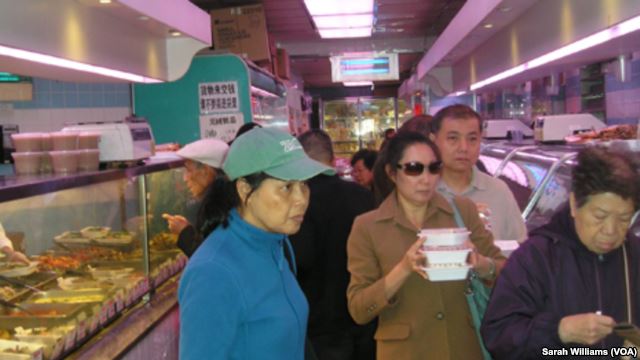
Shoppers at a food store in New York City's Manhattan Chinatown
Despite their American citizenship, some immigrants to the United States report that they still are treated like foreigners. For example, Chinese American commentators say, for their community, looking different than the norm leads to stereotyping and discrimination.
In this last of three reports on U.S. public views of Chinese Americans, VOA looks at how discriminatory attitudes, while persistent, appear to be on the decline. - Editor
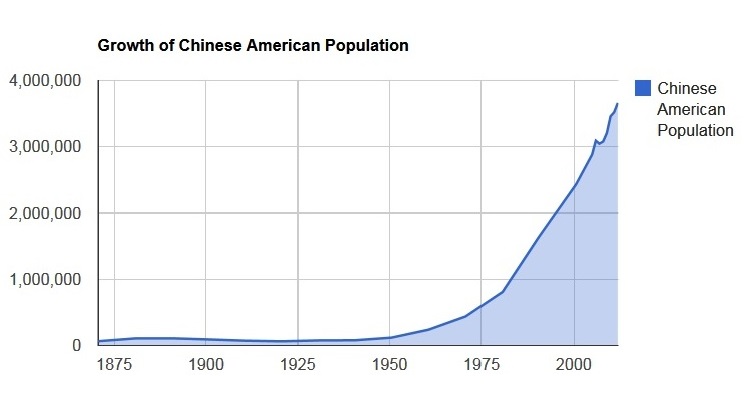 What it means to be 'foreign'
What it means to be 'foreign'"It is a daily occurrence to be asked where you are from," says Frank H. Wu, chancellor of the University of California Hastings College of the Law.
Wu, who writes about Asian American issues for the Huffington Post, is the son of parents who immigrated to the United States from China via Taiwan in the late 1950s and early 1960s.
"When people ask, I explain that I’m from Detroit, Michigan," he says. "But, people shake their heads and say: 'No, no. What I mean is, where are you really from?' The addition of just one word speaks volumes about who truly belongs to this country."
Unintended discrimination can be hurtful. Wu says such interactions sometimes also take on less friendly forms.
One of them, he says, is the heckler’s jeer. “Some people say: ‘If you don't like it here, then you can go back to where you came from!’ And my reply always is: 'Well, things aren't that much better in Detroit.'"
Wu says Chinese Americans also hear some members of U.S. society calling them “communists,” with secret loyalties to China.
A 2012 survey of U.S. public opinion found that 25 percent of respondents believed that Chinese Americans would be more likely to support China than the United States in disputes between the two countries.
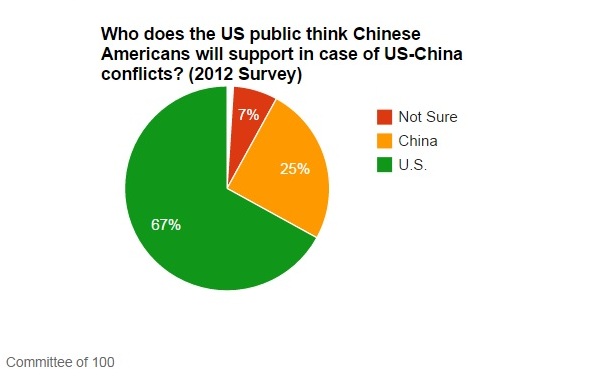
The report by the Committee of 100, a New York-based group of prominent Chinese Americans, said only 67 percent of respondents thought ethnic Chinese U.S. citizens would support the United States.
Helen Zia, a Chinese American rights activist and former journalist, says suspicions of her community go beyond disloyalty.
"From the beginnings of Chinese people being in the United States (in the 19th century), they were perceived as alien invaders that were here to take away everything we love about America," she says. "That has been an abiding archetype."
In a separate 2012 survey of Chinese Americans, 72 percent of respondents said discrimination against their community was a problem, while 24 percent said it was not a problem.
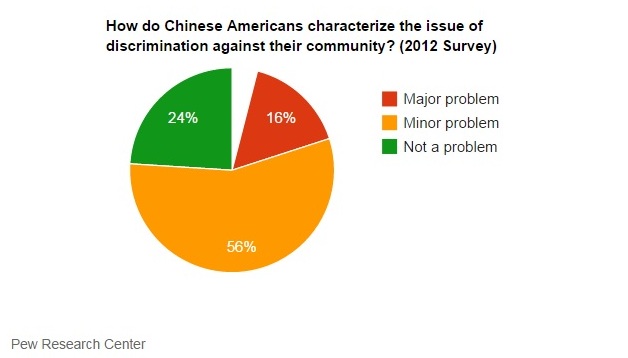
The study by U.S. polling company Pew Research Center found that among Chinese Americans who believed discrimination was an issue, 16 percent called it a "major" problem while the other 56 percent described it as a "minor" one.
Pew also said 21 percent of Chinese American respondents reported experiencing discrimination personally, while 10 percent reported being called offensive names because of their country of origin.
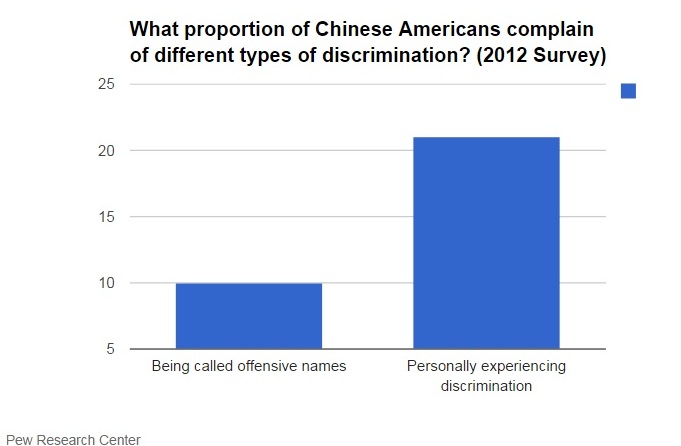 Politicizing the stereotype
Politicizing the stereotypeZia, author of Asian American Dreams: The Emergence of an American People, says Chinese Americans also see resentment toward their community in national politics.
"Whenever U.S.-China relations get chilly, Chinese Americans get pneumonia," she says.
U.S.-Chinese trade is one example. Some U.S. industries complain that their Chinese rivals import products to the United States at prices below "fair" value, forcing U.S. companies to lay off workers.

Vendor at food market in New York City's Manhattan Chinatown (October 2013)
In April, a leading figure in California's garlic industry, Bill Christopher, told the San Francisco Chronicle that half of the state's biggest garlic packers have disappeared in the last decade, in part because of what he called the unfair "dumping" of cheaper Chinese garlic in the United States.
Zia says such criticism of Chinese trade practices can be so harsh that it amounts to a portrayal of Chinese imports as "evil."
U.S. political figures also have faced a domestic backlash for being perceived as too cozy with China.
In 2012, Republicans accused President Barack Obama, a Democrat, of violating election laws by accepting cash donations from China for his successful re-election campaign. The Obama campaign denied breaking such laws.
Zia says politicians have been accusing each other of being "corrupted" by Chinese money. She says the accusation is another manipulation of the public's aversion to any kind of Chinese "invasion" of the United States.
Are Americans xenophobic?Charles Gallagher, a sociology professor at LaSalle University in Philadelphia, says most Americans see themselves as tolerant toward minorities.
In a 2009 survey by the Committee of 100, members of the public gave Chinese Americans a favorability score of 80 out of 100. But, Chinese Americans who participated in the survey said they believed the score was only 64.
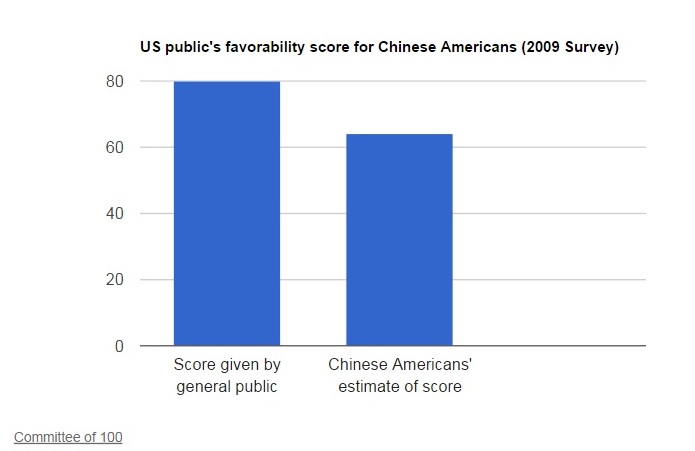
"People typically do not realize they are being insensitive to Chinese Americans by stereotyping them," Gallagher says. "I think that explains the difference (in the favorability scores reported by the public and perceived by Chinese Americans)."
Positive trendThe head of a Chinese American organization in Chicago says she has seen a decline in discriminatory views of her community in recent years.
Chinese American Service League president Bernie Wong says many people used to see ethnic Chinese residents primarily as store and restaurant workers.
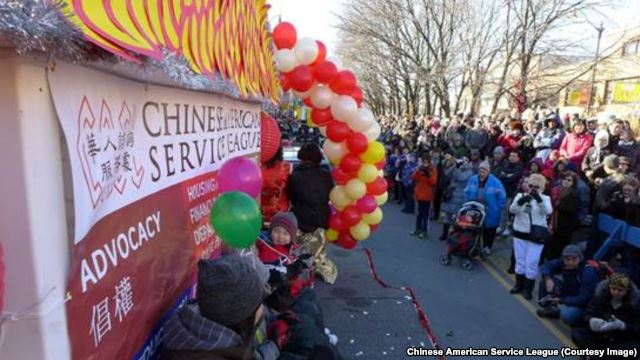
Chinese Americans celebrate Chinese New Year in Chicago's Chinatown on February 17, 2013
"Now, there are many Chinese Americans who are in the corporate world and very successful in investing in new businesses," Wong says. "So the whole attitude has shifted."
Wong says that when her organization started in 1978, Chinese Americans who wanted to deal with city hall or big corporations had no collective voice.
"Today, we are recognized by Chicago's chamber of commerce and invited by every level of government to sit on various committees that would like to have diverse representation," she says.
Wong says her organization is aware of some recent cases of Chinese Americans complaining of racial harassment.
"But, I must say that is not as prevalent in our community (as before). When cases happen, we work with Chicago's Commission on Human Relations to resolve them," she says.
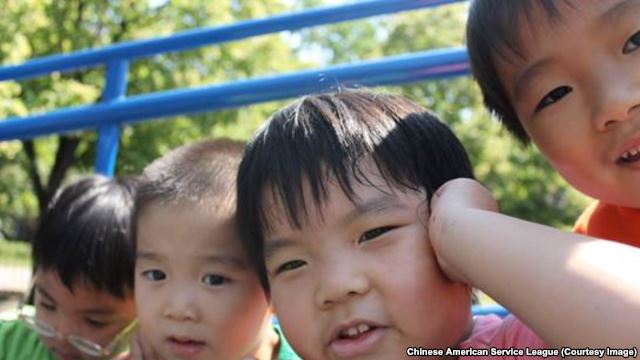
Chinese American children in Chicago, June 2014
"We also educate and connect community members to other cultures to open their minds, so that we don’t always assume that people look at us negatively."
Sociologist Gallagher sees a nationwide improvement in attitudes. "One should not discount the prejudice that still takes place, but if you look at the progress in the last 50 years, there is greater tolerance toward Chinese Americans in the United States."
http://www.voanews.com/content/chinese-americans-discrimination-in-us-still-a-problem-but-improving/1955153.html[ 此帖被卡拉在09-02-2014 16:51重新编辑 ]